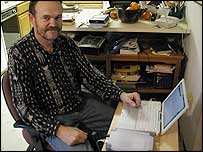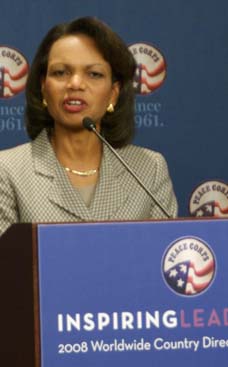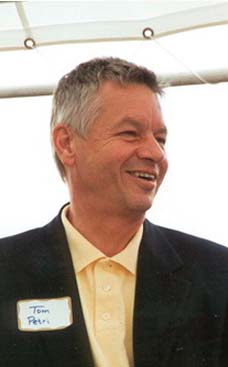
"It seems strange to say so, but I don't think Steve was an idealist. There were only a few times that I ever saw a hint of tragedy in his thinking. For example, I remember him talking pointedly about how new forms of media were driving misdirected urbanization as people (especially the young), led by grotesquely glamorized images of urban life, conclude that rural life is "intolerable" and abandon it. But dystopian trends lay far beyond any difference he could hope to make, so he mostly reserved his skepticism for community-oriented projects and initiatives that had gone awry. When he talked about them, it was with a hint of frustration -- and patience for the people who he felt had lost their way. He usually balanced that out by talking about what he loved most, idiosyncratic projects and settings where people had pieced together new and old techniques and technologies in engaging and creative ways. But these weren't ideals, they were examples. If anything, Steve was a pragmatist." Steve Cisler, upon graduation from Northwestern University in 1965, started a school library in rural Togo, West Africa when he was a Peace Corps teacher.
Bruce Sterling writes: Steve Cisler, RIP
Steve Cisler, RIP
By Bruce Sterling EmailMay 20, 2008 | 6:41:58 PM
Steve Cisler passed away on Thursday 15 May, from a medical condition he'd known about for several years, which had worsened over the last several months. His wife, Nancy, said that he was with his entire family -- which had grown in the last few years -- and that he was relaxed and accepting as his health faded.
Steve spent much of his life in what's become Silicon Valley, and he sometimes talked about how he had seen it turn from almond groves and dusty roads into an intricate suburban sprawl. He lived there when computing was a small scene, and, I guess because of his curious and easygoing style, became sort of famous among Silicon Valley's famous -- not that he ever showed any interest in fame. On the contrary, he cared very deeply about everyday settings and people, and he had a knack for finding the exceptions and difference on the fringes of computers and networking.
These interests led Steve into the delicate, nebulous field of community networking. At its best, it was guided by the some of the fine ideals that shaped the rise of computing: mainly, the hope that new technologies could enable organic forms of social mobility. Though he'd probably chuckle at the idea that he was a pioneer, he was -- of the kinds of values and approaches that, happily, have become familiar as "appropriate" and "sustainable."
It seems strange to say so, but I don't think Steve was an idealist. There were only a few times that I ever saw a hint of tragedy in his thinking. For example, I remember him talking pointedly about how new forms of media were driving misdirected urbanization as people (especially the young), led by grotesquely glamorized images of urban life, conclude that rural life is "intolerable" and abandon it. But dystopian trends lay far beyond any difference he could hope to make, so he mostly reserved his skepticism for community-oriented projects and initiatives that had gone awry. When he talked about them, it was with a hint of frustration -- and patience for the people who he felt had lost their way. He usually balanced that out by talking about what he loved most, idiosyncratic projects and settings where people had pieced together new and old techniques and technologies in engaging and creative ways. But these weren't ideals, they were examples. If anything, Steve was a pragmatist.
A few years ago, I joked to a friend that Steve was a "walking Wikipedia": not a heroic project to redefine knowledge but an endless reservoir of impressions and observations. But it wasn't really a joke. Steve had an amazing range of experience from his work across several continents, much of it in developing areas (very much including the rural US). He thought very intently about what he'd seen and heard, and he appreciated most of all the idiosyncratic people and settings that triumphalism and transformationalism have no time for. Given the context that defined much of his life -- the rise of networks small and large -- his ways of working had a quietly contrary or even polemical side; but he won't be remembered for that. Everything he said took a very genial form -- a friendly chat about some friendly chat he once had. Stories -- hearing them, telling them, it didn't matter -- were a big part of what he did and how he did it: informing, guiding, encouraging. If "small is beautiful" is a cliche, then he was a walking cliche; but it isn't, and he wasn't.
For all his stories, though, he never seemed to present his own life in a narrative form, so there are a few odd things I know about him, but I don't know where or how they fit in. At some point and in a surprisingly early context, he advocated to Native American tribal elders that they develop a ".ind" top-level domain -- a hilarious idea that could have had enormous impact. He worked as a librarian for Apple's speculative Advanced Technology Group, which did incredible work -- various QuickTime technologies, HyperCard, and advanced in speech recognition and synthesis as well as handwriting-recognition software).
As a young man, he served in the US Coast Guard; I think it must have whetted his appetite for travel, and showed him a world that, in an age of airlines and the internet, fewer and fewer see -- of disparate small worlds joined by the sea they share. And he enjoyed traveling around the western US; I think those landscapes also shaped his view of the world -- expanses where you see how small you are, how small everything is, and how immense the sum of it all is. In the last years, somewhere between few and several, he'd taken to bringing an inflatable kayak when he traveled to conferences and paddling around cities all over the world.
Steve's involvement in nettime dates back to a time when the list was still a family of sorts, and one that he enjoyed very much. His involvement in the list tapered off around the Next 5 Minutes 4 conference as his interest turned to what eventually became his last major endeavor, the Offline Project: an effort to understand why, or maybe how, many people and organizations "that are not directly using the Internet to learn about them and how they cope in a world that is increasingly interconnected." I won't pretend to know in any detail what he learned through his research, but two things he told me have stayed with me. First, that many people have positive reasons for living as they like, with no regard for the clatter of technical advance; and, second, when he stopped using email and the like, how quickly many of his connections and friendships dissipated. For someone who dedicated much of his life to community networking in remote areas, this fragility must have said a lot -- but I don't know what, because he never elaborated on it.
Beyond years of emails, which now seem strangely immaterial coming from such a material guy, I have a surprising number of physical objects he's given me over the years: a few bottles of wine he made with family and friends, some seeds for some curious local kind of squash, a vanilla bean (from Uganda, I think), and a few recipes -- for a West African stew and a ciabatta that turned out really well. These came over a period of several years, simple gifts of whatever was at hand, but together they say a lot about who he was and how he lived.
I was lucky to be able to get together with him a few times a year. In times past, that, and a bit of correspondence, would have made for a normal friendship; but in a time when communicating is so much quicker and easier, it seems like very little.
I'll miss Steve very much.
Steve's friends were very far-flung, so feel free to forward this. If anyone sends me messages about Steve, I'll assemble them and make sure they end up in the right place.









